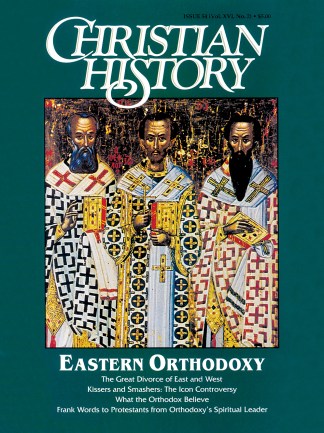In 1136, a Catholic bishop, Anselm of Havelberg, visited Constantinople on a diplomatic mission, and while there engaged in a public debate with the Orthodox archbishop of Nicomedia, Nicetas. Anselm put forth the traditional claims for Roman supremacy: Peter founded the church at Rome, and Jesus gave the keys of the kingdom to Peter.
Nicetas replied that the Holy Spirit did not descend on Peter alone at Pentecost but on all the apostles. All Christians had the right to be consulted about matters of faith and practice. One speech in particular sums up well the Orthodox views of the matter:
"We do not deny to the Roman Church the primacy amongst the five sister patriarchates; and we recognize her right to the most honorable seat at an ecumenical council. But she has separated herself from us by her own deeds, when through pride she assumed a monarchy which does not belong to her office. … How shall we accept decrees from her that have been issued without consulting us and even without our knowledge? If the Roman Pontiff, seated on the lofty throne of his glory, wishes to thunder at us and, so to speak, hurl his mandates at us from on high, and if he wishes to judge us and even to rule us and our churches, not by taking counsel with us but at his own arbitrary pleasure, what kind of brotherhood, or even what kind of parenthood can this be? We should be the slaves, not the sons, of such a church, and the Roman see would not be the pious mother of sons but a hard and imperious mistress of slaves.”
Copyright © 1997 by the author or Christianity Today/Christian History magazine. Click here for reprint information on Christian History.










